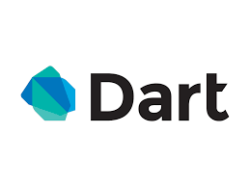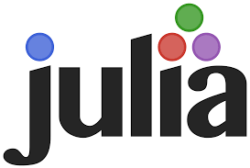
6 ‘Unknown’ Programming Languages That Will Surprise You
So many people, companies, and websites focus on the most in-demand, most profitable, or most widely used programming languages. Too many, we feel. There are countless useful, unique and ‘under the radar’ programming languages out there that never get a look in. It’s the nature of the beast, but we think shining a spotlight on the alternatives every now and again can only be a good thing. So, here are 6 ‘unknown’ – or unknown to the general coding public at least – languages that you’ve yet to get to know, but should. You won’t find a Java, a Ruby or a Python anywhere from here on out.
Erlang
What Does it Do? Erlang is a general-purpose, functional language originally created by Ericsson and released as open source in 1998. As you may have guessed it was designed to improve phone communications, but nowadays it’s main application is to ‘build massively scalable soft real-time systems’. It’s especially useful for banking, e-commerce, and instant messaging.
Why Should You Know About It? Erlang should be on your radar because of one app in particular. It’s an app that’s already wildly popular and only getting more so: WhatsApp. Erlang single-handedly keeps 1 billion active WhatsApp users connected and talking in real time. Pretty impressive, no?
Dart
What Does it Do? Dart is still a relatively young language (it was released in 2011), but it’s already proving its staying power. Originally developed by Google, it is used to build web, server and mobile applications. It’s an object-oriented language with a C-style syntax, and it can compile into JavaScript.
Why Should You Know About It? Dart is the language of choice for one booming technology trend; the Internet of Things (i.e. everyday objects like fridges or thermostats with network connectivity). It’s a very interesting and fast moving area, which means Dart developers are highly sought after.
Julia
What Does it Do? Julia is a high-level dynamic language specifically designed for numerical and scientific computing (although it is technically a general-purpose language). It’s widely used in cloud computing and has won praise for being modern, easy to use and very high-performance.
Why Should You Know About It? Julia is solving an age-old problem in the coding world; using one single language to build complex projects. A quick search on any relevant forum will reveal that countless programmers have replaced a cocktail of C/C++, Ruby and Python with the quick and easy Julia. In short, it’s making programmers’ lives happier and much more efficient.
Scala
What Does it Do? Scala prides itself on combining object-oriented and functional programming elements. Part of its design was inspired by solving the shortcomings of Java, and its source code is intended to be compiled to Java. It’s also highly scalable, which is one of its biggest advantages.
Why Should You Know About It? If you ask some programmers, Scala is basically Java but better. Okay, so Java will probably never be replaced. But Scala is an intriguing alternative; it’s much less verbose for a start, and it does everything Java can do (plus a little more).
D
What Does it Do? D was originally created to be a successor to C, hence the catchy name. During the natural evolvement that all languages go through however, it became its own distinct entity. It’s a systems programming language that’s statically typed, and is known for its efficiency, safety, and power.
Why Should You Know About It? Basically, D has all the power of Java and C with none of the complications. It has its detractors, but the truth is D executes just as fast as C++, integrates well, and has mixins that arguably rival Haskell in versatility.
Haskell
What Does it Do? Haskell is a statically-typed, purely functional programming language loosely based on elements of the Miranda language. It’s widely used in academia but also has a few applications in industry. Its syntax is inspired by mathematical notation, and one of its lauded features is its lazy evaluation (which isn’t actually all that lazy).
Why Should You Know About It? If your interests lie in academic research or if you have any kind of mathematical background, you will undoubtedly enjoy Haskell. Since it’s also quite a specialist, niche language, there are more than a few interesting job opportunities.
Thanks for reading, follow your passion by finding the perfect course, just for you over on www.stoneriverelearning.com.






